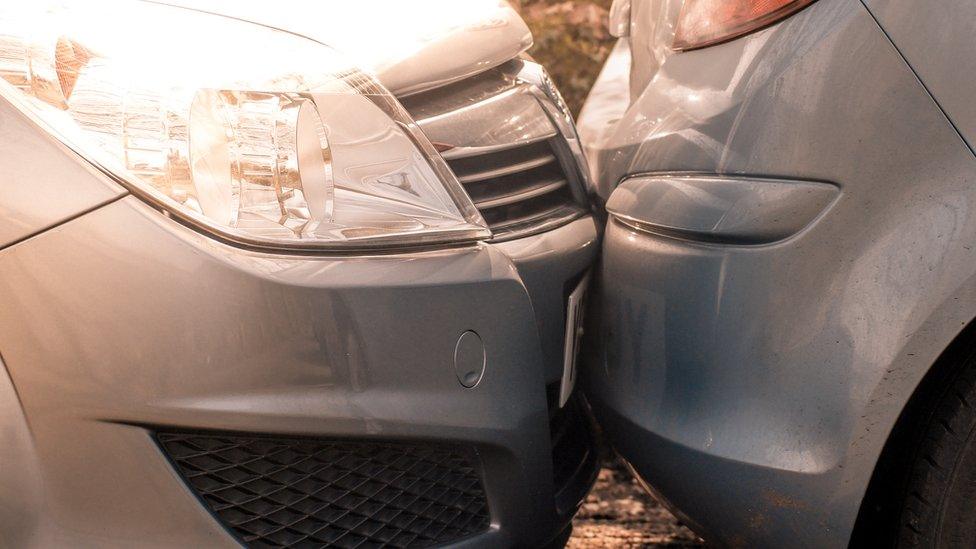Hit-and-run: Dad 'broken' after son's death on rural road
- Published
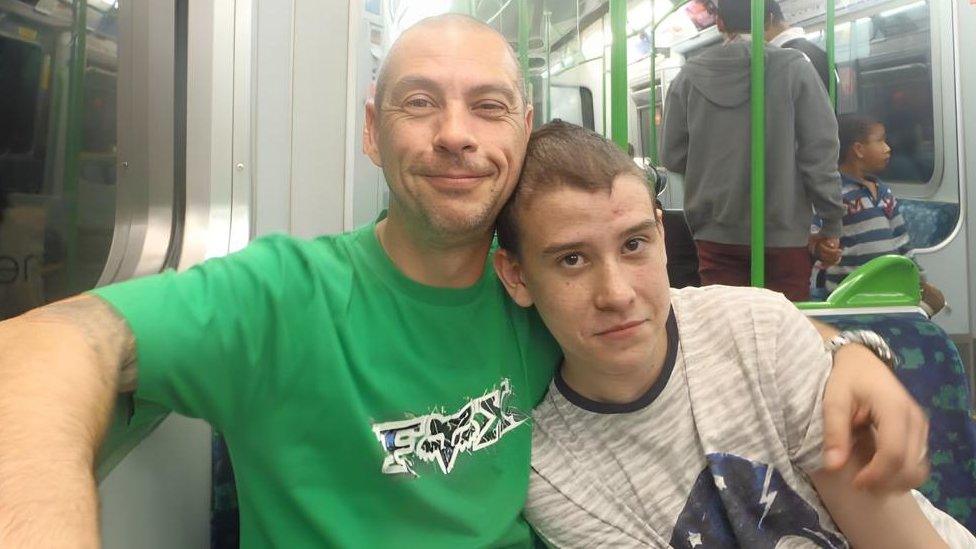
Colin said only child Rhys was a caring and funny son who loved being around people
It is every parent's worst nightmare - a knock on the door to say your child is never coming home.
Rhys Dobson, 19, was walking home after a night out when he was killed in a hit-and-run on a dark, rural road.
Losing their only child "broke" Rhys' parents. His dad, Colin, has since been diagnosed with complex trauma PTSD and left his job as an A&E hospital nurse.
"It was absolutely crippling, it broke me and still affects me," Colin said.
"You just don't think that your son is never going to come home after a night out.
"He was a great lad, just trying to get home and did not deserve to die on the side of this mountain."
Security officer Rhys had been out with work friends when, after being unable to get a taxi, he decided to walk the three miles (5km) back to his home in the Garndiffaith area of Pontypool, Torfaen.
He did not want to wake his parents by calling them to ask for a lift.
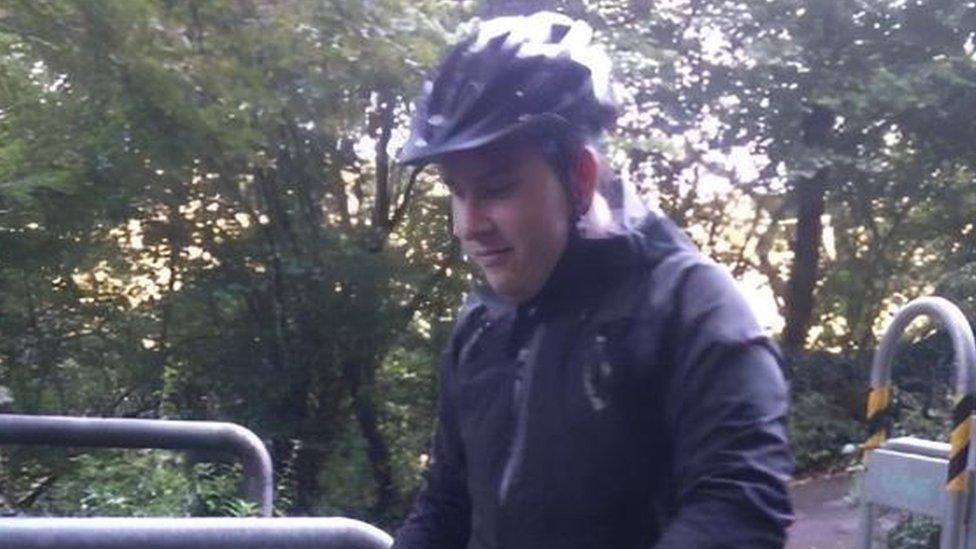
Rhys used to do a lot of mountain biking with his dad as a youngster
But Rhys, a popular and funny young man who had lots of friends, never made it home.
"At half past four in the morning we had a knock on the door, it was two police officers," Colin told the BBC's Crash Detectives programme.
"It is absolutely heart-breaking that my son died on that road by himself.
"It has affected me deeply that someone could just be so callous as to leave someone that they have just injured in a road and drive off as if it meant nothing."
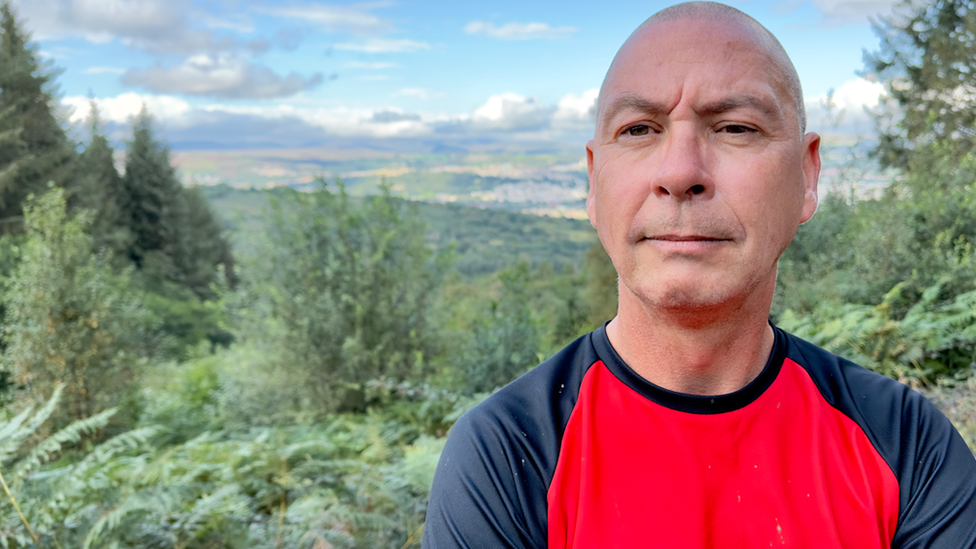
Rhys' death has impacted Colin so much that he left his job as an accident and emergency nurse as it became "too much"
Colin, who used to love mountain biking with his son, said the grief of losing Rhys "was overwhelming", adding: "It's absolutely broken us as a family."
Rhys' body was found by passers-by on the road between Blaenavon and his home shortly after 03:00 BST on 19 April, 2019.
The BBC's Crash Detectives programme showed how forensic investigators used bodywork debris from the scene to work out that he was hit by a black Citroen C3.
Within five hours, officers found a similar car with front-end damage in the centre of Blaenavon.
Derek Richards was convicted of causing death by driving without due care and attention
Officers viewed camera footage from the previous day which showed the car was not damaged at that stage - and CCTV from the nearby shop told officers the car was parked up just three minutes before the 999 call.
As police gathered evidence, 38-year-old Derek Richards, who lived a five-minute walk away, approached officers and told them: "That's my car, I've got nothing to hide."
The lorry driver told police he thought he had hit a "wardrobe or a freezer" before driving home - and was later convicted of causing death by driving without due care and attention.

Watch how Gwent Police's dedicated forensic collision investigators found the person whose car killed Rhys in the latest episode of Crash Detectives.
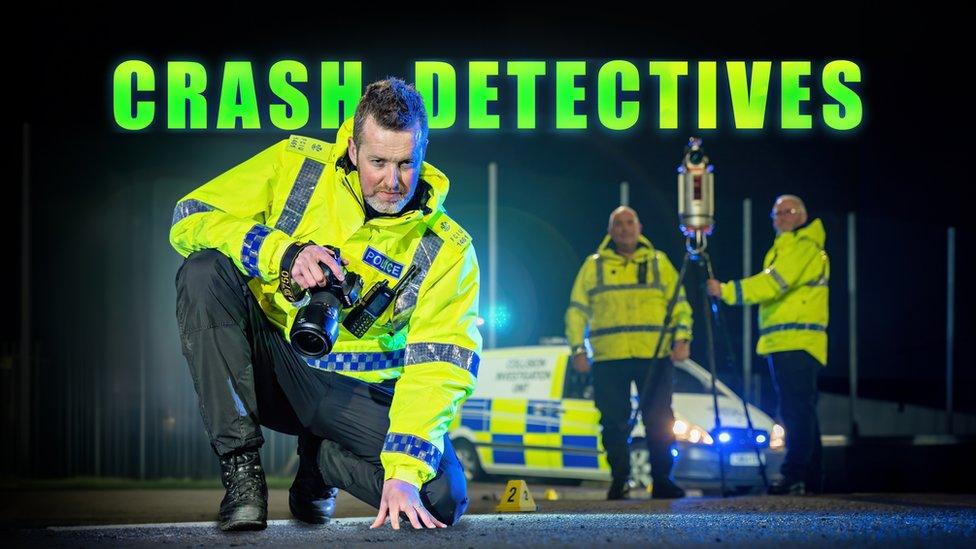
You can catch the first of the four-part series on BBC iPlayer.

The trial heard Richards had taken a potentially fatal dose of amphetamine - more than three times the legal limit for driving.
He was jailed for three years, reduced to two on appeal.
Richards insisted he took the drugs after the crash.
'Crippling' impact of son's death
Colin told Richards' trial that he had been unable to identify his son's body and so his mother, Rhys' grandmother, had done it instead.
"Having worked as an A&E nurse most of my working career, I've been around death and injury my entire adult life," he said.
"For it to happen to my son and for there to be nothing I could do about it, was absolutely crippling to me."
Investigators found data from Richards' car showed he was going at 61mph (98km/h) when he hit Rhys.
He would have had three seconds to move around him.
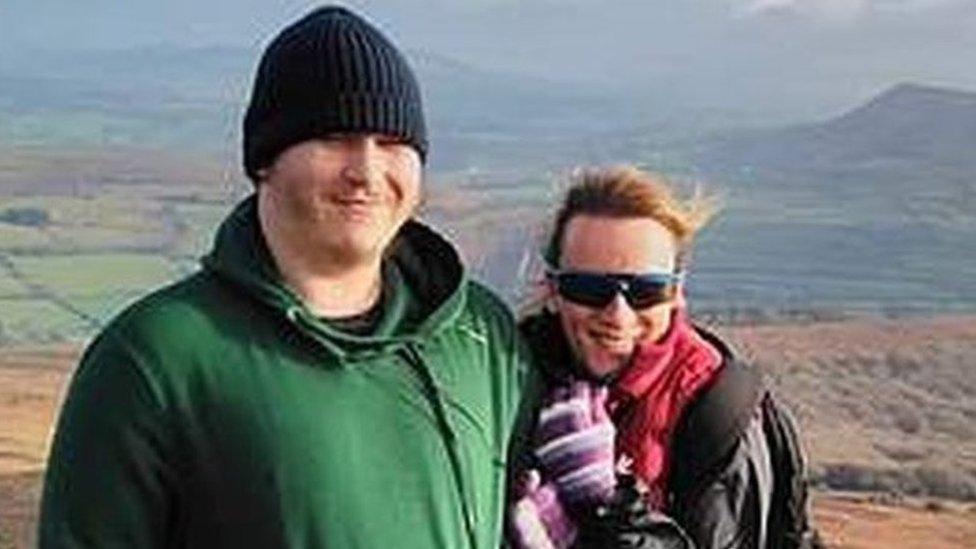
Rhys Dobson, here with his mum Trina, died after helping friends get home safely
"All he had to do was move out 90cm," Sgt Rhys Dickinson of Gwent Police said.
"He has the time, he has the space but he still did nothing and has just left the scene."
How many pedestrians are killed on UK roads?
Rhys is one of approximately 430 pedestrians killed on British roads every year, according to the most recent government figures.
Latest research suggests there are more than 28,000 hit-and-run incidents a year, accounting for more than 10% of all UK road crashes.
Road safety charity Brake has previously said drivers who kill should face tougher sentences.
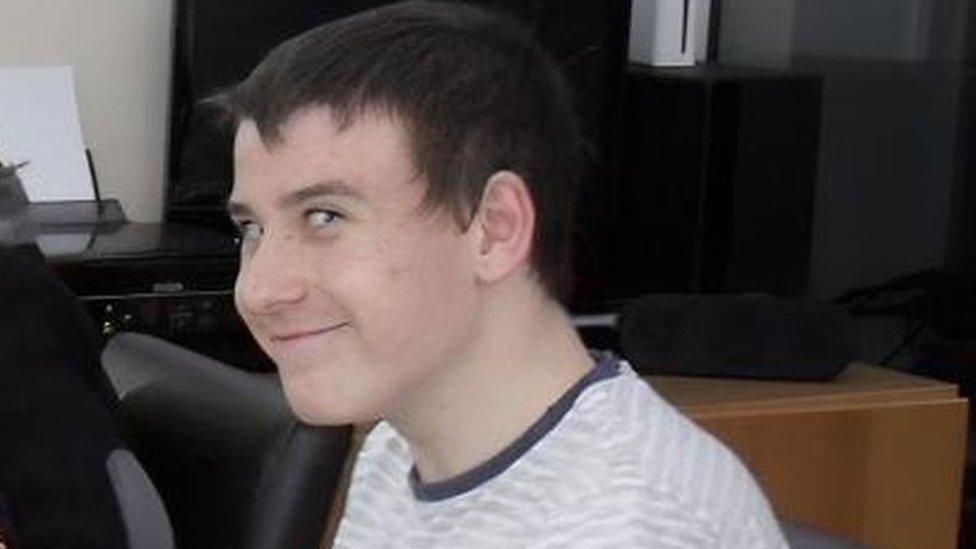
Trina and Colin "invested their lives" in Rhys as he was their only child
"I'm not a believer in karma," said Colin.
"If there was any sense of karma for me, I wouldn't have been losing my son. I had lost him after saving hundreds, possibly thousands of other people's lives, but there was nothing I could do for my son."
Colin said mountain biking was such a huge part of his relationship with Rhys, and he has since sold his bike.
"I've been riding [mountain bikes] and racing them for over 30 years," said Colin.
"But... when you're on the bike, you spend a lot of time in your head and I just ended up thinking about very dark things."
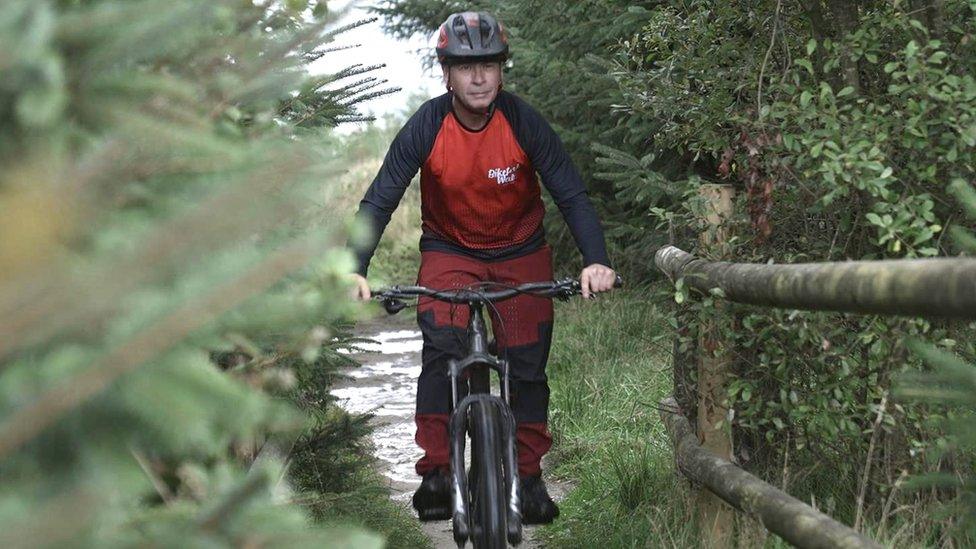
Keen mountain biker Colin gave up his bike after losing his son Rhys because it brought back so many painful memories of the two of them out riding together
Colin now has a job helping beginners to mountain bike at Bike Park Wales near Merthyr Tydfil, which he said had "become my sort of therapy".
"Doing this job sort of fulfils that role I have in myself to nurture people," he said.
"And a sort of job that I would like to do with my own grandchildren - but that's just never going to happen."
If you have been affected by any of the issues in this story, the BBC Action Line has links to organisations which can offer support and advice
- Published24 May 2021

- Published16 April 2019
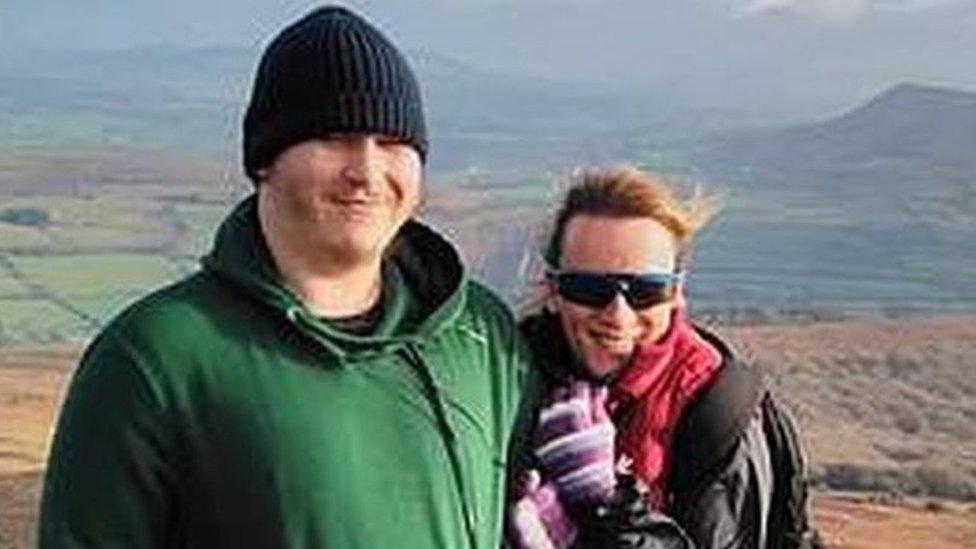
- Published28 October 2018
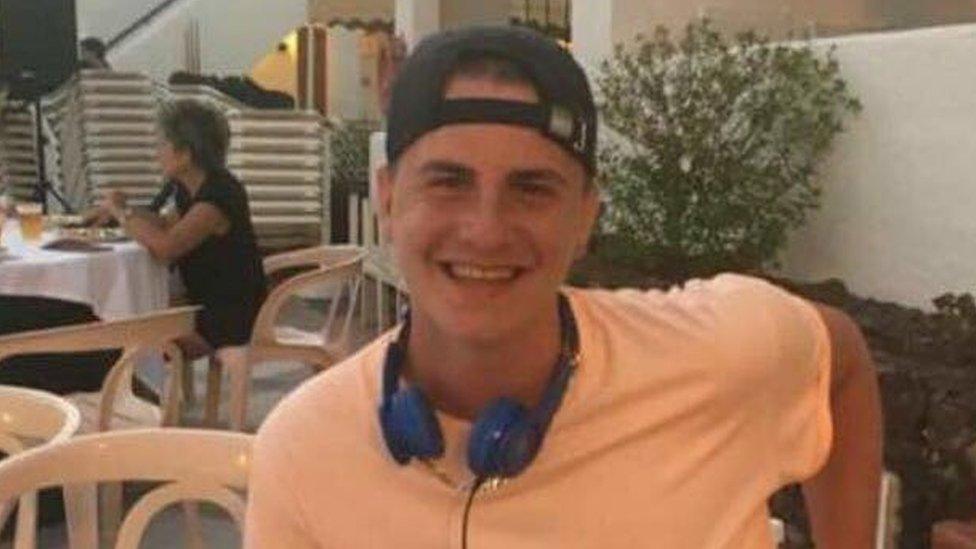
- Published12 January 2017
